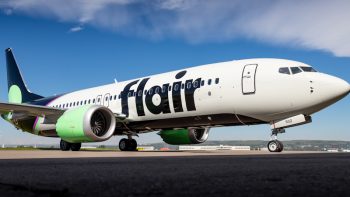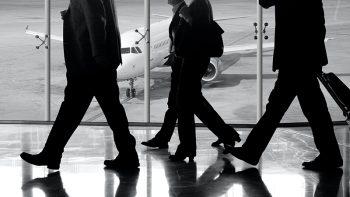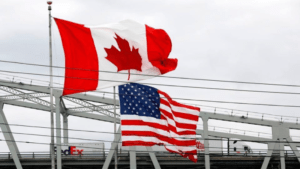
Not long after it tabled new legislation strengthening air passenger rights, the federal government has moved to hold airports and airport operators more accountable for their part in keeping travellers moving smoothly through Canada's air network.
It's a piece of the puzzle that airlines have been demanding Ottawa address, rather than leave airlines solely responsible for long lineups, wait times, lost luggage, and when flights are delayed or cancelled. Individual airlines and the National Airlines Council have argued, as Open Jaw has reported, that security screening and other airport operations also contribute to problems and airlines alone shouldn't be the only ones financially on the hook to compensate pax when things go wrong.
A statement from the Transport Minister sounds promising.
“It’s no secret that the challenges of the last few years have impacted transportation systems here in Canada and globally. As we head into another busy travel season, we have seen how a disruption at one end of the system can have effects across the entire network,” Omar Alghabra said in a release.
But the new rules don't appear to go that far.
As Global News reports, the new legislation, tabled in the House of Commons Tuesday, 20JUN, would only compel airports to provide more information about their own performance. It only requires airports and airport operators to create service standards, as well as track and publish their performance against those standards, like how long it takes luggage to reach the carousel, or how long it takes to get through the security lineup.
“Together, the measures in this proposed legislation will help create a more accountable, transparent and accessible national transportation system that meets the needs of Canadians," said Alghabra.
But some airports are doing that already anyway.
As Open Jaw has reported, the GTAA, the operator of YYZ, isn't just setting a standard and tracking, it has begun fining operators for underperforming.
Via a policy enacted in APR, baggage and ground handlers’ work is being monitored by airport officials, who have issued a “Pearson standard” of performance that includes the maximum time allowed for certain operations including delivering all luggage into the terminal.
Those standards have to be met in order for baggage handling companies to be permitted to renew licences to operate at the airport. Major airlines using their own ground handlers also face sanctions, as do all airlines failing to meet the "Pearson standard" of ground performance.
Ottawa's newly-tabled law, on the other hand, doesn't appear to involve any penalties for underperformance.
So it comes nowhere close to meeting the National Airlines Council (NAC)'s demand for "shared accountability" in Canada's air industry. As Open Jaw has reported, in MAY, the NAC demanded service standards be created for operators like Nav Canada and the Canada Border Services Agency.
Its report also requested that accountability - and financial responsibility - for flight disruptions be shared among airline and non-airline stakeholders via a joint fund.
“They may have internal key performance indicators … but there’s no accountability for them. There’s certainly no public reporting on them,” NAC CEO Jeff Morrison told Global News in MAY. “Even if, let’s say, an airport had a particular standard of getting your luggage through its luggage belt in a certain period of time, we don’t know what that is.”
And the new legislation stops far short of the NAC's demands for shared accountability.
Will published tracking of airport service standards and performance - with no penalties for failing to meet those standards - be enough keep Canada's airports operating smoothly?
The new legislation is unlikely to pass before the House breaks for the summer, right in the middle of high travel season, so that question, as it relates to summer travel chaos, appears to be moot.






